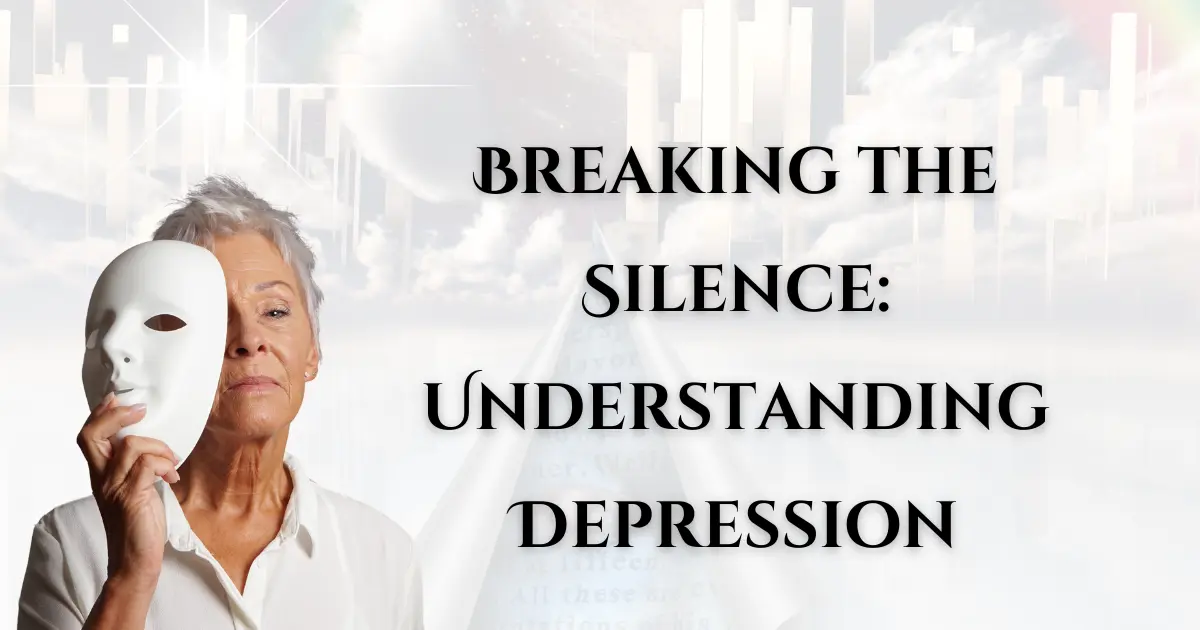Breaking the Silence Understanding Depression, First of all,
Sometimes whispered in low voices, the word “depression” carries stigma and misconceptions. However, silence conceals its widespread influence, impacting millions of people worldwide. In this talk, we attempt to peel back the layers of misconceptions that surround depression by exploring its many dimensions, effects, and routes to recovery and hope.
Depression is a severe mental illness that presents with persistent hopelessness, dejection, and intense disinterest in activities that one once found enjoyable. Depression transcends fleeting sadness; it is a genuine medical condition that requires recognition and treatment.
Examining the Types of Depression:
Depression manifests in a variety of ways, such as:
1MDD, or major depressive disorder
Depression that doesn’t go away (PDD)
Depression after childbirth (PPD)
SAD, or seasonal affective disorder
Bipolar disorder symptoms Disclosed:
Depression has a range of symptoms, including:
Prolonged despondency and helplessness
decreased enthusiasm for activities
Variations in food intake and sleep habits
Laziness and exhaustion
reduced ability to focus.
Suicidal thoughts
Depression’s causes:
Depression arises from a complex interplay of causes, including:
innate tendency
Abnormalities in neurotransmitters
Adversities in life, such as trauma, loss, and stress, can present challenges.
physiological conditions (long-term sickness, excruciating pain)
Misuse of substances
Breaking the Stillness:
Depression is often a solitary illness, but it doesn’t have to be. Starting a dialogue about depression is the first step towards recovery. Among the strategies are:
Sharing personal stories with trusted confidants
Seeking professional assistance, such as counseling or therapeutic therapies, is necessary.
Participating in supportive networks
Writing in a journal to achieve catharsis
Fostering Hope and Healing:
Despite depression’s stronghold, treatment can open doors to hope and rejuvenation. The following are some strategies to promote healing and hope:
Getting help from professionals (pharmacotherapy, psychotherapy)
Making self-care (exercise, mindfulness, and relaxation techniques) a priority
Fostering social connections through participation in online networks and support groups
Gradual steps in the direction of recovery (setting goals, celebrating achievements)
In summary:
Depression is a complex condition that requires understanding, empathy, and support. By removing the veil of silence and seeking help, it is possible to go in the direction of healing and hope. Keep in mind that asking for help shows strength rather than weakness. Breaking the Silence Understanding Depression



